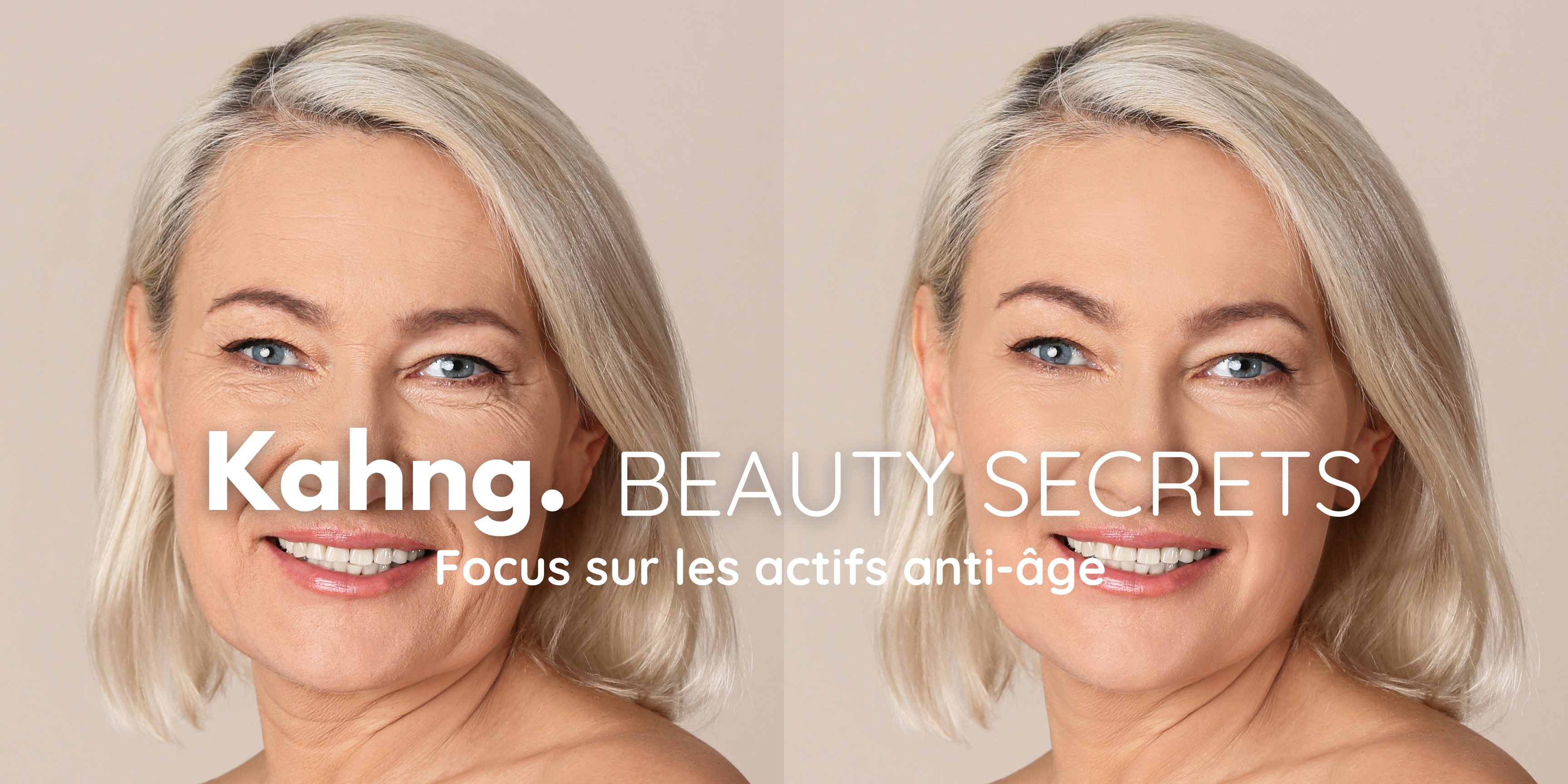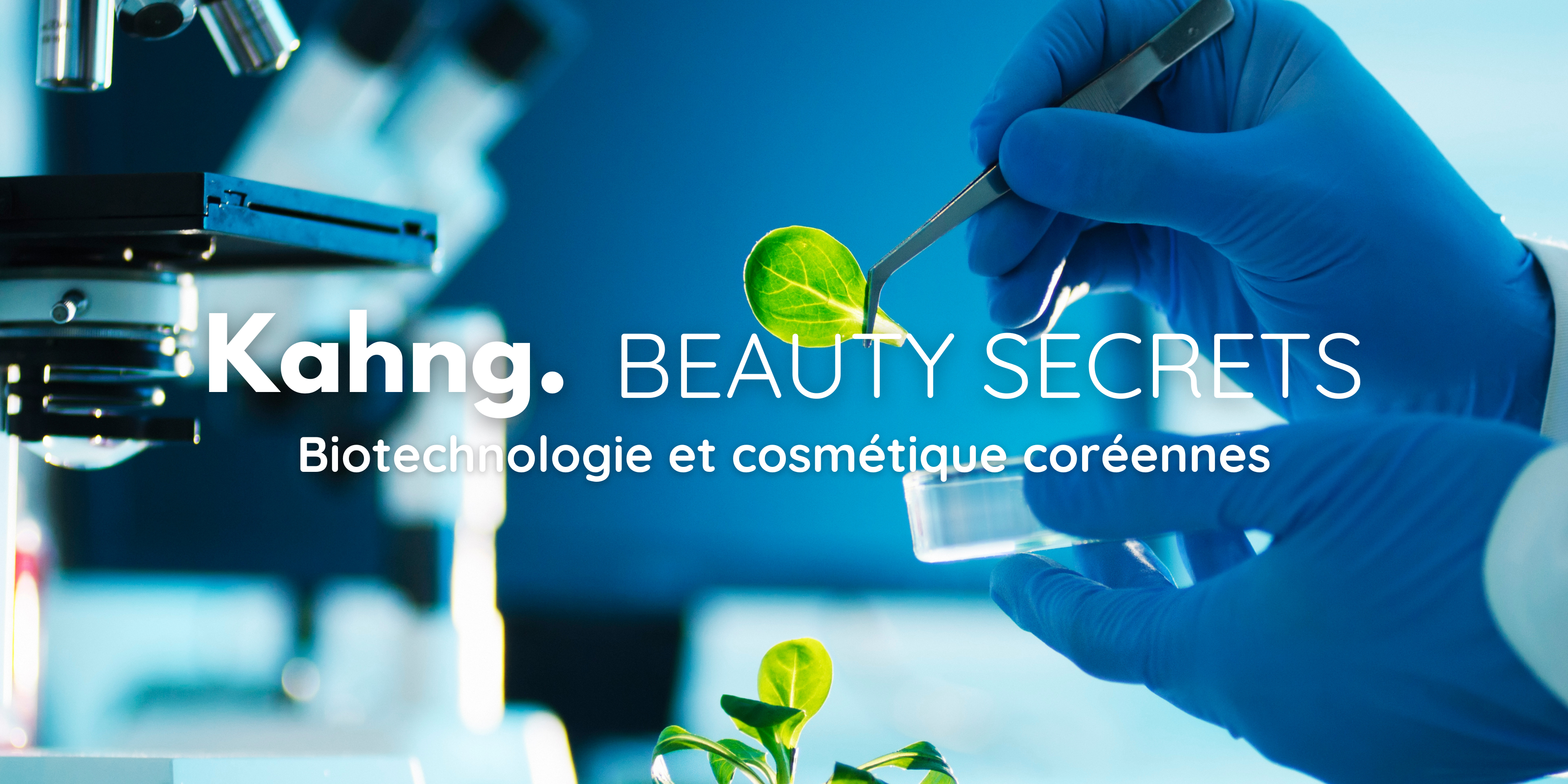
Focus on stem cells and k-beauty
Stem cells play a crucial role in various fields including regenerative medicine, scientific research and, more recently, the cosmetic industry, particularly in the K-beauty sector.
What is a stem cell?
As a reminder, stem cells are non-specialized cells that have the ability to transform into different types of functional cells (skin cells, hair cells, muscle cells, etc.). There are mainly two types of stem cells:
- Embryonic stem cells : These are capable of differentiating into any type of cell in the body.
- Adult stem cells : present in various tissues, they help repair and regenerate damaged cells.
Human stem cells in K-beauty
Stem cells have become a popular subject in scientific research, particularly in cosmetics, because of their ability to regenerate tissues and renew skin cells.
Stem cell products are used in cosmetics for their regenerative and anti-aging properties. They can help to:
- Stimulate cell regeneration
- Boost collagen production
- Reduce the signs of aging
- Improve texture and shine
Stem cells are well known in South Korea
In South Korea, this technology has found its place in the beauty industry, particularly in the K-beauty (Korean cosmetics) sector, thanks to advances in biotechnology and a more flexible regulatory framework.
Technological advancements: South Korea is at the forefront of biotechnology and skin care. Their regulations are more relaxed when it comes to research and the use of stem cells in cosmetics, compared to other regions of the world.
Culture of innovation: Korean consumers are open to innovation and are looking for effective anti-aging and regenerative solutions. Korean brands are investing heavily in research and development of new formulas based on science.
Regulatory regime: Regulations around the use of stem cells in Korea are more permissive, allowing companies to develop and commercialize products quickly, while benefiting from an advanced research framework and rigorous clinical trials.
Not yet legal in Europe?
The use of human stem cells in cosmetic products in Europe is strictly regulated. The main reasons why it is not yet legal are:
Strict regulations: The European Union imposes very strict regulations regarding the ingredients used in cosmetic products, especially those of human origin, to ensure consumer safety.
Ethical concerns: The use of human stem cells raises ethical questions, including the source of these cells and their treatment. This leads to complex debates, especially since some stem cells can come from human embryos or tissues.
Lack of evidence on long-term safety : Long-term studies on the safety of human stem cells in cosmetics are not yet numerous enough to reassure European regulators.
Quality standards: The EU requires strong evidence of product quality and efficacy. Human stem cells are still a relatively new field, and brands must provide clear scientific evidence before obtaining regulatory approval.
How do Korean companies get around these restrictions in Europe?
Korean companies wishing to export their products to Europe find several ways to circumvent the restrictions:
Synthesis or formulation of stem cells : Due to strict regulations in Europe on human stem cells, Koreans opt for the synthesis of cells rather than the cells themselves. These alternatives are more easily accepted by European regulators and meet their standards.
Partnerships with European laboratories: Korean companies can work closely with laboratories in Europe to ensure that their products meet EU safety standards and directives.
Clinical studies and documentation: Korean companies invest in clinical studies and provide rigorous data to demonstrate the efficacy and safety of their products. This includes extensive laboratory and volunteer testing, proving the safety of ingredients.
Human stem cells represent a major innovation in the field of cosmetics, particularly in South Korea, where they are very popular for their anti-aging and regenerative properties. However, their use remains controversial in Europe due to ethical concerns, strict regulations and a lack of evidence on long-term safety. Korean brands have therefore adjusted their products to comply with European standards, opting for alternatives such as synthesis or formulation.


